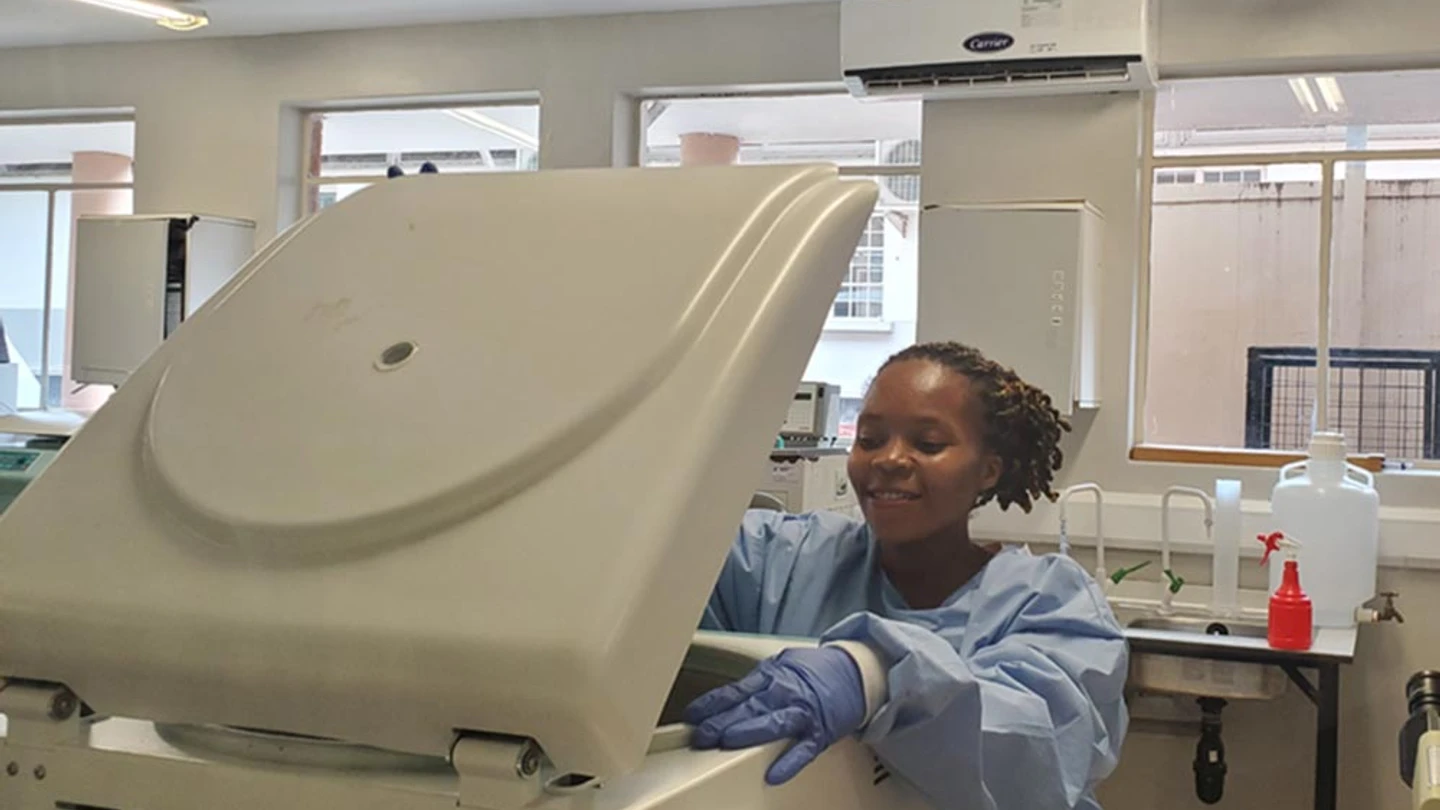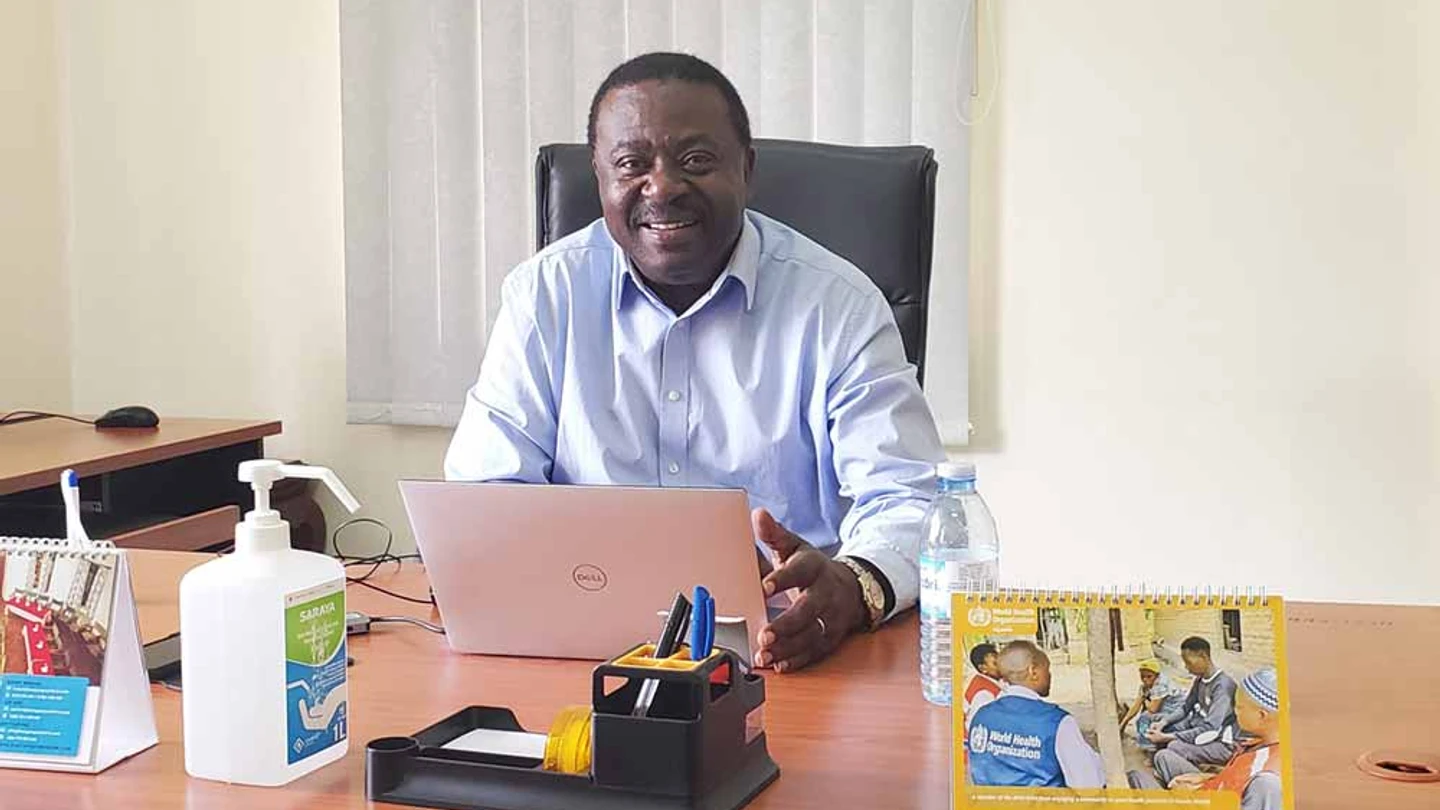“For the entire world”: a Uganda research facility steps up to catch the next pandemic bug
When an outbreak of a deadly infectious disease occurs, vaccines become our shields. If there are no licensed vaccines – like in the recent moments during the onset of the global COVID-19 pandemic, or the Sudanese strain Ebola outbreak in Uganda last year – speedy vaccine development is a critical life-saver.
In May, 2023, the Coalition for Epidemic Preparedness Innovations (CEPI), unveiled a potentially transformative initiative dedicated to expediting vaccine development during outbreaks. Established in 2017 as a public-private partnership, CEPI was founded to develop vaccines to stop future epidemics – and to quash outbreaks before they swell into pandemics.
CLN: the world's local vaccine lab
In an announcement, the organisation welcomed five new members from the global South (Africa and India) into its Centralized Laboratory Network (CLN) – a group of facilities that use the same methods and materials to standardise and thereby accelerate the evaluation of vaccines against pandemic and epidemic diseases. The network is a vital component, says CEPI, in its 100 Days Mission, which aims to reduce vaccine development timelines to just 100 days – 226 days fewer than the record-breaking sprint to get the COVID-19 vaccine out into the world.
With the new additions, the CLN comprises 15 facilities spread across 13 countries. The Uganda Virus Research Institute (UVRI), a government-owned institution, is one of those new network members. At the UVRI campus, a buzz of excitement is palpable among the scientists.
Uganda links up
UVRI is located approximately 36km south of Kampala, Uganda's capital, in Entebbe, which lies the shores of Lake Victoria. This serene setting serves as a wellspring of inspiration for the brilliant minds that call UVRI home.
"The COVID-19 pandemic presented us with significant challenges, particularly in terms of sample movement and ownership," reflects Pontiano Kaleebu, UVRI's director. "These labs became very active during the COVID pandemic since there was a challenge of movement of samples from the global south to the north," given the mobility restrictions most countries were under.
To overcome hurdles like these, Kaleebu emphasises the importance of developing local capacity for sample processing, reagents, assays, and validation, reducing the reliance on sample transfers that can get logjammed in an epidemic crisis. UVRI's inclusion in the CLN is, he says, "aimed at establishing local capacity and minimising the need for sample and specimen transportation."
Immunologist Obuku Andrew Ekii, who is actively engaged at UVRI, underscores the pivotal role CEPI plays.

"With CEPI's support, UVRI can now conduct end-point experiments [i.e. analysis of the main study outcome] locally, eliminating the necessity of sending samples abroad."
This development signifies a significant leap forward in their research capabilities.
Kaleebu underscores the importance of developing accurate, standardised tests that can be replicated across different centres. But UVRI's role as a reference laboratory that can confirm diagnoses and undertake monitoring and surveillance is not new, he notes. The facility has hosted various reference labs for diseases like yellow fever, emerging infections, the EPI programme for immunisation, and SARS-CoV-2.
The UVRI story
Established in 1936 by the International Division of the Rockefeller Foundation as a Yellow Fever Research Institute, UVRI's journey over decades has been marked by significant contributions to the understanding of various viruses.
UVRI has isolated numerous viruses, including Chikungunya, O'nyong'nyong, Zika, West Nile, Bunyamwera, Bwamba, and Sindbis, totaling 124 strains and 24 new viruses between 1936 and 1972.
In 1942, UVRI became a crucial distribution center for yellow fever vaccines across Africa and the Middle East. In 1950, it was renamed the East African Virus Research Institute and designated as the WHO Regional Centre for Arboviruses Reference and Research. Collaborations with organisations like the Imperial Cancer Research Fund and the study of Burkitt's lymphoma ensued.
.webp)
In 1969, UVRI embarked on a programme for polio and other viruses, expanding its remit to a comprehensive research portfolio. But the collapse of the East African Community (EAC) in 1977 led to UVRI's renaming as the Uganda Virus Research Institute.
In 1987, UVRI commenced HIV research after the discovery of the Human Immunodeficiency Virus (HIV) in Uganda. It became the reference laboratory for HIV diagnostics and surveillance, working closely with the AIDS Control Programme.
In recent times, it has also garnered support from diverse partners, particularly US government agencies, due to the pressing need to address emerging viruses. The institute has made significant discoveries, bolstering its legacy.
A new chapter: joining the hunt for Disease X
In 2022, CEPI issued a call for institutions to become central reference labs for Ebola Sudan and Marburg. UVRI responded late that year, explains Geoffrey Kimbugwe, the head of research and governance at UVRI.
He says UVRI's application showcased its extensive capacity in terms of laboratories, personnel, regulation, partnerships, and more. The thorough review process aimed to ensure that the selected institutions could meet the global requirements, as this effort is geared towards benefiting the entire world, he explained.
[A thorough review process ensured that selected inistutions could meet global requirements, explained Geoffrey Kimbugwe, head of research and governance at UVRI, as this effort is geared towards benefiting the entire world]
Kaleebu points out that there are major advantages of being part of the CLN, emphasising that membership provides access to others' innovations while allowing the institution to claim ownership of any new reagents they develop during the process.
Forging ahead on Ebola
This new development is timely for UVRI, which is doing the laboratory work for a now-approved clinical trial on vaccines against the Sudan ebolavirus, called the Tokomeza Ebola trial.
Scientists at UVRI say CEPI's assistance has been invaluable, particularly in setting up the required assays – tests to analyse a substance – for this study.
CEPI networks open up new opportunities because we have had questions like, 'Are you part of the CEPI central network? These assays have to be done in a CEPI network [lab].' But now we are part of it we should be able to do work beyond clinical trials to laboratory work
All the assays for Tokomeza for Uganda will be done here in Uganda. The knowledge we gain from CEPI will be transferred to different labs like Mulago, Makerere so that we have similar standards.
Uganda received three candidate vaccines against the Sudan ebolavirus in December 2022, intended for a ring vaccination trial. However, the outbreak was successfully contained before the trial could take place. Nevertheless, the protocol remains active and ready to be deployed, meaning that if a future outbreak occurs, a timely ring vaccination drive will be able to go ahead.
In the meantime, a new opportunity arose to conduct a Phase I/Phase II trial to study the safety and ability to trigger a strong immune response of these vaccines, ensuring a better understanding of their performance and UVRI will do the laboratory work for the trial.
In good company
Over time, UVRI has evolved into a global beacon of scientific inquiry, attracting collaborations with renowned institutions like Makerere University, Columbia University, and Johns Hopkins University. These partnerships have propelled groundbreaking research in HIV, spanning risk factors, disease progression, and innovative interventions.
As a vital hub for reference activities, UVRI hosts a plethora of critical functions, from regional reference centres to national diagnostic laboratories for infectious diseases.
Currently, UVRI serves as a hub for numerous activities, including being a national and regional reference center for vector-borne viral diseases, a WHO influenza collaborating laboratory, a national diagnostic laboratory for highly infectious viral infections, the Africa WHO yellow fever reference laboratory, the national HIV reference and quality assurance laboratory, the national and regional reference laboratory for HIV drug resistance, a WHO Measles and Rubella Regional Reference laboratory, and a WHO Inter-country Polio laboratory.
Oiling the wheels
But there are also challenges. Jennifer Serwanga, the assistant director of research, Immunology, at UVRI says it is difficult to obtain critical materials like reagents, and the procurement process is cumbersome.
"Most of the things we use come from abroad, and when you do this work, you can have a list of so many things, but until you have the full list, you can't start the work. So even if they are available, you have to get them all in to be able to start, and procurement is a long delay for us," Serwanga says.
"Something that has always been a challenge is that even if you might be able to do the work, you might not be able to access some of these things like reagents. Nobody will share with you. But when you have this network (CLN), they facilitate to link you so that those people can allow you to share," she says.
The researcher also said equipment maintenance and repair have posed additional challenges. "The moment that equipment breaks down or is not functioning very well, it becomes difficult to get in people to come and service or repair," says Ekii.
Some companies were noted as seeming uninterested in the African market, making it challenging to find bio-medical engineers to service the equipment.
Serwanga provided an example of the difficulties faced in servicing specialised equipment, such as an ELISpot reader made in Germany, where servicing and shipping it back for maintenance could cause significant delays.
She was positive that CEPI will address some of these challenges by linking researchers to necessary resources and expertise, although this does not eliminate all the difficulties associated with working in resource limited settings.

"I think the important thing is building capacity for the future. We are preparing ourselves for disease X. We have to start somewhere, and I am very proud of the capacity being developed in all areas, including regulation and understanding the requirements of Good Manufacturing Practice (GMP)," says Kaleebu.
"When we started, some people did not understand how these products move into humans, but we are learning a lot, and this capacity-building is valuable, and the investment is worth it."
